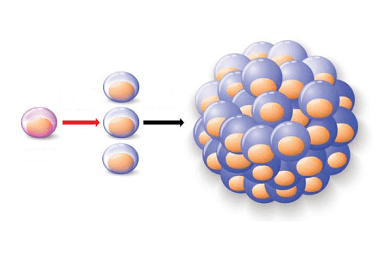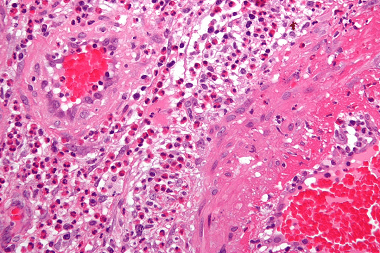Medicine questions >>>> Granulomatosis - what is it?
Granulomatosis - what is it?

Granulomatosis is a group of diseases, the main clinical sign of which is abnormal tissue proliferation caused by cell proliferation (uncontrolled growth).
Granulomatosis can be triggered by various kinds of influences: infection, trauma, inflammation, necrosis, etc.
Any tissue can be subjected to granulomatosis: mucosa, skin, connective, muscular, parenchyma of organs, vascular walls. Granulomas cause tissue destruction and impairment of their functions.
For example, if granulomas affect the vessel wall, then its integrity is violated, which leads to bleeding, if eye tissues are affected, then vision loss occurs.
Granulomatosis can develop in foci or generalized (affect tissues of all organs and systems).

The causes of granulomatosis are not fully understood, but it is believed that this is an autoimmune disease, when the immune system, due to a previous infection (for example, a viral one), ceases to distinguish between targets and forms antibodies to leukocytes, which under normal conditions are destroyers of pathogens, and in granulomatosis they become participants in tissue structure disorders , provoke the development of granulomas.
Signs of granulomatosis depend on which tissues and organs are involved in the pathological process. For example, if the vessels are damaged, hemorrhages are observed, when the respiratory organs are damaged, the symptoms correspond to diseases of the respiratory tract (cough, shortness of breath), with kidney damage, edema, nausea, high blood pressure are observed, and when the tissues of the joints are damaged, their motor function is impaired.
Treatment for granulomatosis involves the use of cytostatics - drugs that limit cell proliferation (division). With the generalized form of granulomatosis, the forecasts are disappointing, since the functions of vital organs are radically impaired.

Read

Read



























